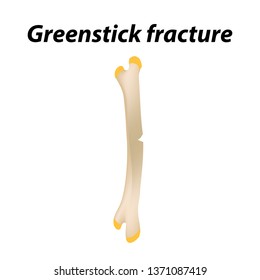Are Chiropractic Adjustments Addictive? Separating Truth From Fiction
Are Chiropractic Adjustments Addictive? Separating Truth From Fiction
Blog Article
Content Writer-Klint Corbett
You might have listened to that chiropractic modifications can cause a habit forming dependency, yet that's an usual misunderstanding. functional medicine doctor locate relief without establishing any kind of form of addiction. It is necessary to understand truth objective of these modifications and exactly how they fit into your overall health strategy. So, what exactly does the scientific research state about chiropractic care and your wellness? Allow's discover the truths.
Comprehending Chiropractic Adjustments and Their Function
When you think about chiropractic modifications, it's vital to understand their purpose and just how they work. These adjustments aim to fix imbalances in your spine and joints, promoting far better alignment and movement. By using https://daltonjdxsl.blogsidea.com/42037839/take-a-breath-more-easily-and-learn-exactly-how-chiropractic-treatments-can-revolutionize-your-wellness-what-astonishing-advantages-lie-in-wait-for-you-beyond-merely-soothing-discomfort to particular locations, chiropractic doctors aid minimize discomfort, enhance feature, and enhance your total well-being.
Chiropractic care concentrates on your body's ability to heal itself, emphasizing the connection between the spinal column and the nervous system. When your spinal column is aligned, it can minimize nerve interference, permitting your body to operate optimally.
Normal changes may also aid protect against future concerns, keeping you energetic and pain-free. Eventually, chiropractic adjustments offer to support your wellness, boost wheelchair, and improve your quality of life.
Common Myths Regarding Dependency and Chiropractic Treatment
Lots of people hold mistaken beliefs regarding the relationship in between chiropractic care and dependency therapy. One usual myth is that chiropractic care adjustments create an addiction-like dependence. In truth, many patients discover relief from discomfort and pain, but this does not imply they develop a psychological or physical dependency.
One more misconception is that chiropractors are simply attempting to keep you returning for more adjustments. The majority of chiropractic specialists prioritize your well-being and go for long-lasting health and wellness rather than regular check outs.
Additionally, some think chiropractic care can replace typical addiction treatments, yet it needs to complement, not replace, evidence-based therapies. Comprehending these myths can help you make informed selections regarding your wellness and health without falling prey to false information.
The Science Behind Chiropractic Adjustments and Client Experience
While some might question the efficiency of chiropractic adjustments, a growing body of research study supports their duty in relieving discomfort and boosting overall feature.
Researches show that spinal control can reduce discomfort from problems like lower neck and back pain, stress headaches, and neck discomfort. When you undertake chiropractic treatment, the changes aim to restore appropriate placement, improving your body's natural healing capabilities.
Lots of patients report raised movement and a better feeling of health after treatment. Additionally, the healing partnership you construct with your chiropractor can boost your experience, as they give tailored treatment tailored to your demands.
This mix of clinical backing and favorable patient experiences aids clarify why chiropractic care changes are effective for lots of people looking for relief.
Conclusion
Finally, chiropractic modifications aren't addictive; they're developed to improve your well-being and advertise proactive health care. By exposing the myths bordering dependency, it's clear that these treatments can offer significant alleviation without developing a cycle of dependency. Welcoming chiropractic treatment as a complementary strategy to conventional therapies can result in better health and wellness outcomes. So, if you're considering changes, felt confident that they're about boosting your quality of life, not developing a reliance.
